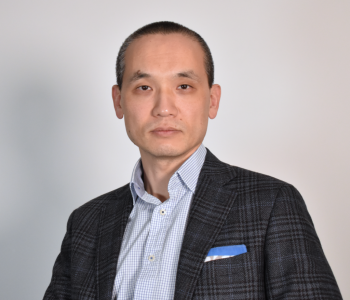 In The News
In The News
 In The News
In The News
 In The News
In The News
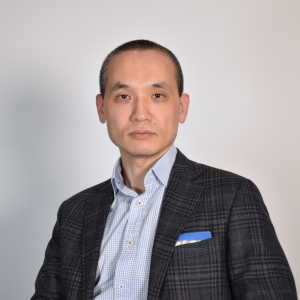
Yin Luo of Wolfe Research and FWE board member was recently named as one of the Top 10 Ai Minds on Wall Street according to Rebellion Research Ai Asset Management in an article that can be found here. FWE is very appreciative of his contributions to our organization and proud of his recognition in his field.
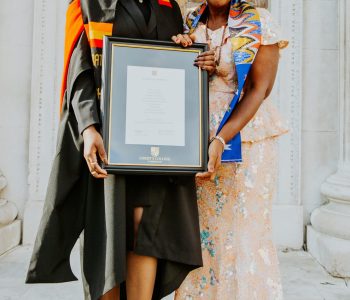 In The News
In The News
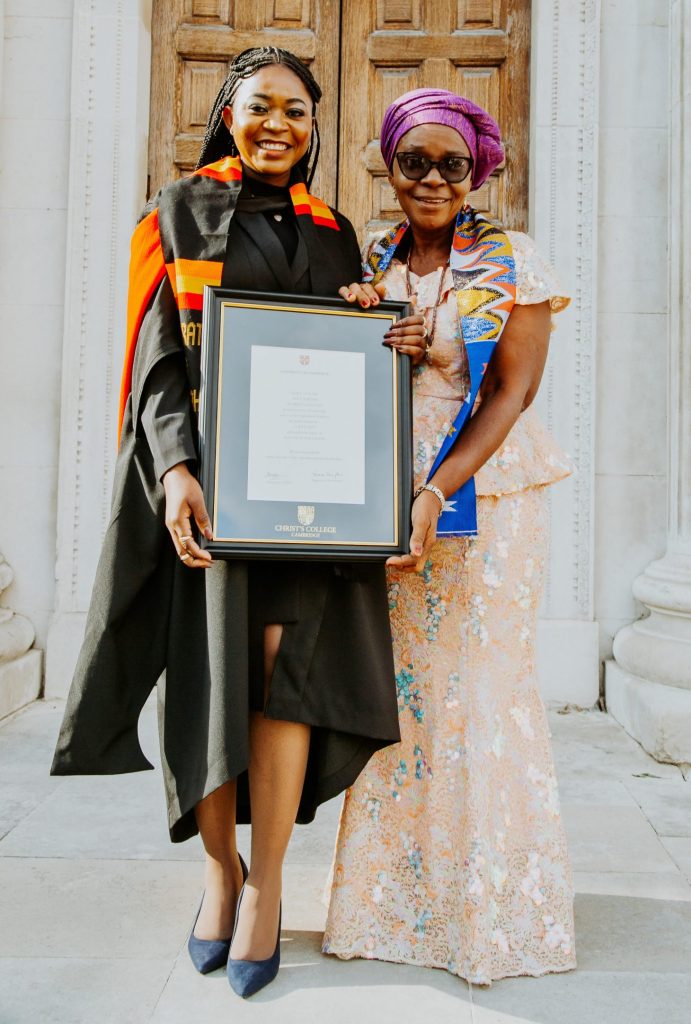
A Message from Alice to be shared with the FWE Community:
“I am happy to inform you that on the 21st of July, I graduated from the University of Cambridge.Your community and support were my strengths! I am sincerely graduate for all the mentorship, opportunities, and grant.
It’s been an intimidating journey for me, but the end result has been rewarding. I’d like to share a photo of my mum and me on graduation day.”
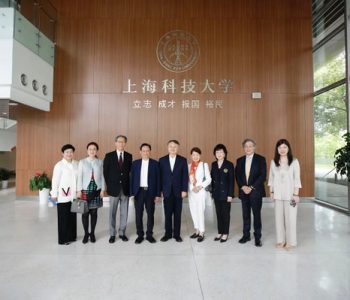 In The News
In The News
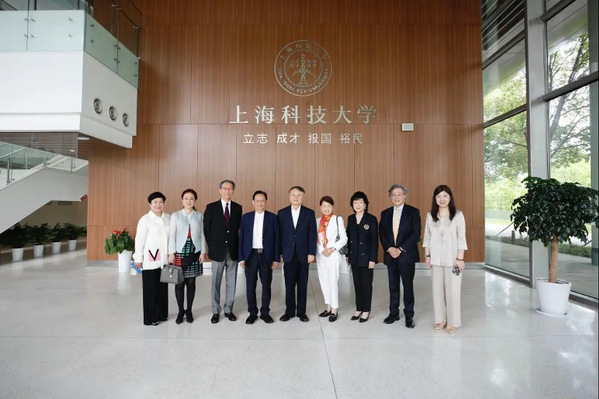
On May 30, a delegation from the Forum for World Education (FWE) visited ShanghaiTech University, led by Cheng Yan Davis, Co-founder and President of FWE. The delegation was received by President Jiang Mianheng, Vice President Jiang Ge, and Vice Provost Yu Jingyi, and others.
President Jiang extended a warm welcome to the delegation and introduced the development history and characteristics of ShanghaiTech, as well as its experience in cultivating innovative talents and promoting technology transfer. He expressed the hope that both sides could strengthen cooperation in the future. Before the meeting, Jiang Ge accompanied the guests to visit the Shanghai Synchrotron Radiation Facility and Soft X-ray Free Electron Laser Facility. They enjoyed the lively demonstrations and were impressed by the scientific achievements made in these cutting-edge facilities. The delegation also visited schools and institutes such as SIAIS, the iHuman Institute, BME, SEM, SCA, and learned about the construction plans for the Center for Future Medicine.
In the afternoon, the guests and ShanghaiTech spinoff leaders held an Entrepreneurship Seminar at ShanghaiTech SPACE (incubator). The founders/CEOs of CorrectSequence, MOFenerg, Stereye, DGene and Asiflyer Biotechnology briefly introduced the milestones, financing scale, and product highlights of their companies. Following that, the two sides shared their entrepreneurial experience and discussed potential partnership opportunities. Finally, the delegation visited SIST, where Yu Jingyi accompanied the tour and made introductions.
The FWE delegation brought together 25 industry luminaries including Edith Shih, Ani Kharajian, William Cheung, Li Ping, and Pan Jun, members of the Forum’s Steering Committee, as well as Ping Tse, Founder of Sino Biopharmaceutical and Senior Vice Chairman of Charoen Pokphand Group (CP Group), Li Yi, Chairman of Innovation Times Group, and several FWE Young Leaders. This visit to ShanghaiTech not only deepened their understanding of the university but also established a bridge of communication between ShanghaiTech and international education and investment professionals.
The Forum for World Education (FWE) is a non-profit worldwide organization headquartered in Cambridge, Massachusetts, with operations in major cities throughout the world. Its mission is “to transform education in answer to the skills and knowledge requirements of current and future global society, its economic growth, societal progress and sustainability.”
Link: https://www.shanghaitech.edu.cn/eng/2023/0608/c1260a1078107/page.htm
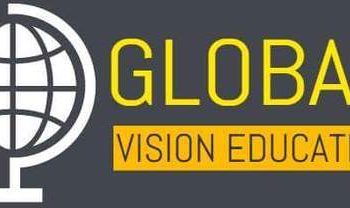 In The News
In The News
At a recent online interview, Mr. Guangfa
Wang, Co-founder of FWE and Principal of Beijing Royal School shared his
thoughts on the challenges and opportunities in international education, the
reform and innovation in the training of individuals with global perspectives
under the impact of the Covid-19 pandemic.
In Beijing Royal School, the
philosophy of education is to focus on students-centered education through
fused Chinese & Western approaches, cultivate moral integrity in them, and
inspire them to succeed. As one of the earliest international schools in
Beijing, its alumni have been active in organizations and events both at home
and abroad in politics, academia, businesses, education, and across sections.
Their inspiring journeys have started at Beijing Royal School where they have been
exposed to quality education resources and opportunities, and later graduated
with knowledge, competence and the determination to make a difference. That is
what Principal Guangfa Wang is most proud of.
The
Pandemic has Brought Challenges to the Whole World
Q: Hello,
Mr. Wang. We understand that you are currently in the US. Could you share with
us what the situation is like over there? And what’s your opinion about the
coverage by foreign media on China’s efforts to fight Covid-19?
A: Based on my observation, New York
and Boston are two of the most hard-hit cities. I had been staying in Boston
before recently moving to New Hampshire and right now I stay on our Busche
Academy campus. Situation here is better as far as I can see, and my team and I
work as normal. Our two campuses in the US are undergoing renovation at the
moment.
There is no doubt that the pandemic
does bring changes to the global landscape, including the international order,
bilateral and multilateral relations. At the same time, the collective efforts
of the Chinese people to fight Covid-19 are the manifestation of President Xi
Jinping’s forward-looking call to build a community of shared future for
mankind. It is precisely
because of this pandemic that countries around the world are aware of the need
to improve their ability to respond to diseases and natural disasters, speed up
the allocation and expansion of public health resources, increase awareness of
epidemic prevention and control, and make the world pay more attention to life
science health, economic recovery, and scientific research.
I do notice that there have been
different voices and comments from media lately, especially comments on
responsibility disputes caused by the pandemic and I think they are mostly
objective and fair. There are, however, many different noises. Some countries
for example the United States issued different judgments and assessment towards
the WHO’s efforts against COVID-19. The multifaceted nature of world opinion
poses a challenge to global organizations. It is true that judgments do differ,
but it is normal that countries hold different values, and that different values
will inevitably lead to different perspectives and understandings of certain
new things.
More
talents with global perspectives are needed to promote national development and
fulfill international responsibilities. It is advised that parents and students keep calm observation and
make wise decisions.
Q: We know
that the pandemic has had a huge impact on international political and economic
landscapes as well as young people’s overseas education plans for many
families. Could you give the parents some advice?
A: To be honest, I don’t think it is
very wise to cancel any plans for your children to receive international
education.
The past few months have proved that
the disease can be defeated, and that panicking does not help. As long as we
equip ourselves with awareness, knowledge and confidence, believe in science
and have faith in collective efforts, we will win the battle against Covid-19
eventually. We as parents should also see through this battle and know that the
world and human civilization will only go forward.
In the past four decades since the
Reform and Opening Up, China has embraced the world in economics, trade, education,
and cultural exchanges, and it has demonstrated a sense of responsibility
during this pandemic by promptly issuing protective measures, sharing
information and offering assistance. In the future, China will still face
challenges of various kinds; and individuals with international perspectives
will be the backbone power to cope with these challenges and build a community
of shared future for mankind. As the key to a better future, education will
remain top priority for our country.
Therefore, a family’s investment and
planning for the next generation of education should not be interrupted or
changed due to an epidemic. In the long run, a child will have decades of
growth and learning time. Everyone will experience one or another pain or
disaster. We parents should help them make rational and correct choices, and
lead our children to perceive the world in a global way, to think critically and
to make a sound judgment.
I look forward to the day when the
pandemic has ended, more families have shaken off anxiety and uncertainty,
ready to join hands with the society and schools to forge ahead in the
education for the next generation.
Q: When do
you think is a good time to send a child to study abroad?
China has excellent basic education. For
Chinese parents who plan to send their children abroad for further education, I
would suggest that they do so after their children have completed basic
education in China. However, it is also recommended that the students should
have a general picture about other countries and cultures via short programs
such as study trips.
In order to better engage in
international communications, one has to have a clear cultural identity and
profound knowledge of the history and culture of his own. At the same time, it
is very important that they have substantial understanding of the tradition and
customs at home and abroad. Therefore, we need to rely on a combined pathway.
When we look back on our history, the
New China was founded by people largely influenced by Western philosophy and
thoughts, as many of the top leaders in CPC such as Zhou Enlai and Deng
Xiaoping had all studied abroad. In the past four decades since the Reform and
Opening Up, over 5.2 million Chinese students have studied abroad, and 1.4
million among them are still studying overseas. Over the years, they have made
great contribution to the development of China and the world.
As China has now become the world’s
biggest source of international students, it is also transforming into an
increasingly popular hub for international students. Mr. Chen Baosheng, China’s
Minister of Education made the prediction that by the year 2049, China will
become the most longed-for destination country for international students. It
will be a time when China has greater say in the reform of the world education,
and embraces more communications and exchanges via education. A country’s
future relies on its youth, and a young man’s future depends on the education
he receives. Therefore we as educators need to be responsible, and make wise
decisions on the education plans for the younger generations.
The Training of Individuals with Global
Perspectives
Q: The
idea of “global perspective” has attracted much attention in various aspects
such as education and business. As China is actively interacting with the
world, many US schools are opening Chinese classes, and foreign business people
are learning about Chinese culture. Would you like to talk about something on
the “global perspective” in Beijing Royal School?
A: Globalization of Education
underpins an open mindset and a global vision. Since its establishment in 1996,
Beijing Royal School has incorporated Chinese and Western education systems in
its practice, and is now playing a leading role in China’s education reform.
Beijing Royal School has always
maintained close partnerships with educational institutions around the world in
the hope of understanding and learning from the developed world in terms of
economic, cultural, social and scientific development. With that in mind,
Beijing Royal School has set up sister school partnerships with multiple
overseas schools. The Busche Academy established as a US campus of Beijing
Royal School is a manifestation of such philosophy — We integrate teaching
models and curriculums as well as share faculty and teaching resources.
In
terms of international courses and assessments, Beijing Royal School is always
a pacesetter. As early as 2003, BRS was registered as a course and test center
of CIE(Cambridge Assessment International Education).
Later in 2006, AP Courses were introduced, making BRS one of China’s first to
obtain an accreditation by the College Board as an AP test center. Over the
years, BRS has been authorized by China’s Ministry of Education, ETS, AQA,
Edexcel and other international assessment organizations to administer tests
and deliver programs including TOEFL, GRE, A-Level, GAC, HSK and pre-test for
SAT.
Years
of successful running in these courses and programs has also won us many awards
such as one of China’s first “Model School of AP Courses”, and six BRS teachers
were awarded “Model Teachers of AP Courses”. We will continue working hard to
live up to these international standards, preparing our students for global
competition.
We’ve
also taken into consideration that Chinese culture and language learning is
gaining popularity worldwide, and we’ll open Chinese language learning classes
in our US campuses.
My
career took off with traditional industry. It was my experience that
highlighted the importance of human resources in almost all industries and
aspects of society, and that education is the key to quality human resources.
As China has reaffirmed the importance of education, I have also looked beyond the
interaction in industries and shifted the focus to international education. As
we introduce quality educational resources from abroad, our strengths in
distant learning and digital education platforms have also reached out via our
overseas offices in US, UK and France.
At
BRS, students are encouraged to explore into their interests, talents and
passion. We do whatever we can to provide students with opportunities to
present themselves, on international stages, to the global audience; and our
students have benefitted from these experiences. Zhao Peng with the Class of
2019, for example, had been an active participant since his junior years in the
program of Peer Leadership for Healthy Relationships co-hosted by BRS and UN
Women. He was therefore invited to speak at the UN ECOSOC 2019 Youth Forum at
the UN headquarters, and is now studying at University of Pennsylvania.
As
a joint venture, we as educators share the same philosophy in education, which
is that education has no borders; we should embrace the highlights with an open
mind and make the most of it for our students. We equip the young with
competence and vision, and they contribute to the country and the world.
The Rule of Law is Essential for
Education
Q: We know that a good sense of rules
is indispensable, but some students’ awareness of rules and regulations are
relatively weak, that might even cause some
to change or give up their overseas study plan. Can you share with us some of your experience in
developing BRS students’ awareness of international rules?
A:
I myself have a professional legal background; and this has proved to be an
advantage of BRS in legal education. As early as 2003, a delegation of BRS paid
visits to multiple Law Schools in prestigious universities in the US, such as
the Law School in the University of Minnesota. Over the years, we have
maintained strong ties with many of them by paying reciprocal visits, inviting law
professors and professionals to give lectures to our students on topics
including the law systems, rules of jurisdiction, comparative law, and the
differences between the civil law systems and the differences between the trial
systems and the procuratorial systems thus opening a window for our students to
understand the importance of laws and rules in the international community. We
also set up a campaign called “Build a Rule of Law Culture in School” to
explore ways to enhance legal education.
Without
rules to guide our action, nothing can be achieved, especially when one goes
global. In the future, the international talents we train will have a good
awareness of rules in international negotiations, international trade and
international cooperation.
The
interaction between China and international community in the past few decades
has brought us to realize that only when one is equipped with extensive skill
sets and substantial knowledge of rules, can one make contribution to global
governance.
A Diversified Curriculum for an
All-round Education
As
China’s education is geared towards a more comprehensive way, the assessment
criteria have been enriched in different dimensions. On top of the traditional
indicators including test scores and class performance, students’ social
emotions and ability to interact with the society and nature are being
assessed. To help the students find and pursue their real passions, a
diversified curriculum including piano, swimming, soccer, skiing, film-making,
literature and liberal arts has been designed and delivered in BRS.
Youth is the Hope and Future for the
Nation and the World
Q: Is there anything else you want to
share with the young people in the audience to help them overcome anxiety
caused by the outbreak?
A:
Well, I want to quote Chairman Mao when he met with Chinese students on his
visit to former Soviet Union. He said “The world is yours, as well as ours, but
in the last analysis, it is yours. You young people, full of vigor and
vitality, are in the bloom of life, like the sun at eight or nine in the
morning. Our hope is placed on you.” Indeed, the world relies on the young for
a brighter future.
In
a time when the world is forging its way towards globalization and economic
integration, China has engaged so profoundly in international affairs than
ever, and has gained unprecedented attention worldwide. Its calling for the
Belt and Road Initiative, its joining in G20, SCO, BRICS, China-ASEAN
Cooperation, AIIB and other organizations have all demonstrated China’s important
role in the international community.
I
wish the young people could see the world with unbiased mindset, prepare
themselves with comprehensive skill sets, respond to the call of time, and live
up to the expectation of the world.
I
have full confidence that the young will do us proud in the near future. Thank
you.
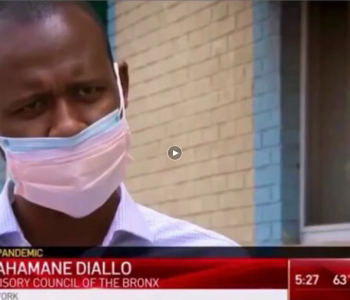 In The News
In The News